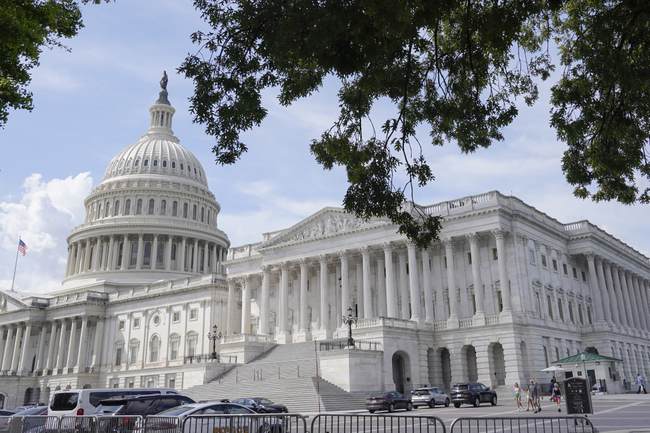
Share To Alt-Tech
This article was originally published on PJ Media - Politics. You can read the original article HERE

As election 2024 wound down, I noticed an intriguing shift in how most people in my social media feeds and real life were getting their election news and information. Most were commenting and posting from what some still call "new media." Like the historic election itself, this shift is both exciting and encouraging.
Advertisement
It seems the normies have finally had enough of legacy media's lies and obfuscations. It's no longer the most trusted source of election (or any) information for Americans. And it's about time.
This platform is the top source of news on Earth! https://t.co/YhmSY9K6x8
— Elon Musk (@elonmusk) November 5, 2024
In truth, "digital media" is now a more accurate name for media outlets like PJMedia. We, and many others, have been around for twenty years or more and have proven ourselves. We no longer deserve the derisive moniker "new" given to us by the haughty legacy media, which liked to sneer that we'd never last. Wrong again, leftists. Digital media is here to stay and grow, unlike them.
This growth is evident in the University of Chicago's AP-NORC Center for Public Affairs Research periodic State of the Facts poll conducted with the USAFacts.org team. The poll aimed to understand how Americans feel about government facts and where their information comes from. The results show the same shift I was seeing in real-time.
The AP-NORC/USAFacts poll was conducted from July 29 through August 8, 2024, just as election 2024 was heating up. The 1,019 adult respondents were asked questions to determine where they got their election information, how they determined the validity of the information, and which sources they trusted and to what degree.
The poll found that "social media and TV news are the most common sources of information about the government."
Respondents were asked to think about the ways they "get information about the government these days," and how often they got information from sources such as social media platforms, TV, newspapers, the president of the United States, government agencies, or businesses."
Advertisement
Forty percent of respondents said they use social media the most. They check those platforms "several times a day/once a day," including 27% on "YouTube/other online video-sharing platforms"; 23% at "online-only news sites" (like PJMedia); 13% on "podcasts"; and 6% on "Artificial Intelligence (AI) or chatbots."
That's a heck of a lot of eyeballs on social media—and not on the legacy media.
Local, national, and cable TV news came in next at 38%, 36%, and 31%, respectively. "Public TV or radio such as PBS or NPR" (how are those still a thing?) had a combined 23%, while dead tree media like local and national newspapers came in at 15% each. Next were the president (14%), state government (10%), and business (10%). Rounding out the bottom were federal agencies (8%), just ahead of AI at a mere 6%.
Recommended: Nobody Cares About Endorsements From Biased, Obsolete, Self-Important, Self-Absorbed Dead Tree Media
Do Americans find it easy to tell fact from fiction when choosing their information sources?
A majority of respondents (63%) found it "easy to differentiate fact from opinion," with 53% able to find factual information on the subjects they were interested in, but only 36% said it's "easy to know if information is true."
As Election 2024 moves into the certification process, how much do Americans really trust government information on election results?
When respondents were asked, "How much do you trust [government certifications, TV, newspapers, social media, candidate campaigns, and AI] sources to provide accurate information about the outcome of the 2024 presidential election?" their answers were telling: Only 40% of Americans trust government certifications “a great deal/quite a bit,” with 29% trusting them “a moderate amount,” and 30% trusting them “only a little/not at all.”
Advertisement
Government certifications ranked higher than local and national TV news networks, candidates and their campaigns, newspapers, social media, and AI. But as we know well, Americans also view any information coming out of the government with a healthy dose of skepticism. And after this insanely dishonest election cycle, why wouldn't Americans have lost trust in the credibility of the government and its legacy media lapdogs?
One thing is certain: The 2024 election made clear that many Americans no longer trust or listen to legacy media as their primary source of information and are instead turning in droves to digital media—a trend that is likely to continue.
Editor's note: If you believe in what we do here, please consider becoming a supporting VIP member. You'll get an ad-free experience, exclusive stories, and access to the comments sections at all the Townhall Media sites—PJ Media, RedState, Townhall, Twitchy, HotAir, and Bearing Arms. Gold members get all that plus access to premium content across all the sites, including VIP live chats. Platinum members get all that plus direct messaging with writers from all the Townhall Media sites and access to our huge and growing TownhallTV library.
Advertisement
For a few dollars a month, you can directly support our trustworthy, conservative journalism and commentary. Sign up here to become a VIP member. For a limited time, we're offering a 74% discount on a new membership in honor of the 47th president of the United States. Use the promo code POTUS47 to activate the largest discount we've ever offered. Click here to upgrade to Platinum if you're already a VIP member. If you join Platinum now, you'll get a $25 credit for our new merch store and a lifetime 25% discount.
This article was originally published by PJ Media - Politics. We only curate news from sources that align with the core values of our intended conservative audience. If you like the news you read here we encourage you to utilize the original sources for even more great news and opinions you can trust!










Comments